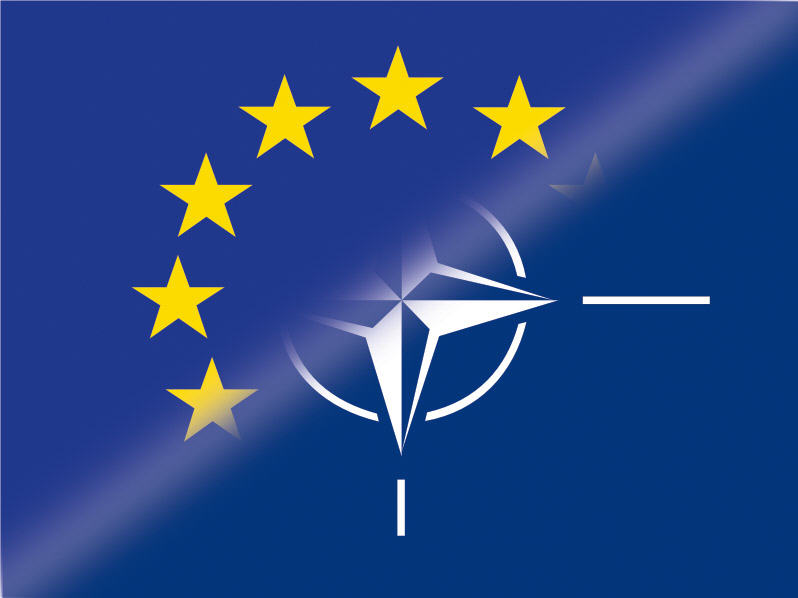
From Ioan Mircea Pascu, the New Atlanticist: While we, the former allies of the Soviet Union were watching attentively that behaviour, drawing the right conclusions in regard to our future security , the main EU powers, safeguarded by the geographical distance separating them from Russia, considered it more as an economic and commercial partner, capable of helping them to overcome the current economic and financial difficulties. And, consequently, they proved to be more accommodating towards Russia in all other fields, including security.
The implications are not negligible: we, in East-Central Europe, have more trust in the Art.V of the Washington Treaty than in the similar clause of the Lisbon Treaty.
However, the fundamental problem affecting both organizations is not this. In respect to the EU, the main problem is, in my opinion, that of re-nationalizing the common policies we have reached at (see, for instance, the possibility to suspend the Schengen Arrangement), coupled with the military impotence of the organization (CSDP, one of the major achievements we liked so much to invoke, failed its first real test – Libya – and was completely eliminated from landscape, lacking both political [the necessary consensus] and military [ the capacity for command and control] means to be activated).
As for NATO, while the US, for reasons I am not going to discuss here and now, have made a step back in the case of Libya, preferring, for the first time in the history of the organization, a support rather than the usual leading role, question marks have appeared both on the military side: the technological gap between the Americans and their European Allies has become clear, with the latter lacking crucial assets, and on the political side: what will be the attitude of a NATO left to the same European Allies who demonstrated how little they care about the security of their East-Central European fellow- members?
Ioan Mircea Pascu, formerly Romania’s Minister of Defense, is a member of the European Parliament and is a member of the Atlantic Council’s Strategic Advisors Group. This essay originally appeared in STRATFOR.
Image: nato-EU.jpg
